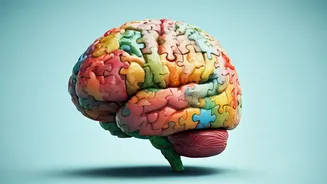Stay Mentally Active
Engaging in mentally stimulating activities is a cornerstone of dementia prevention. Cognitive challenges help maintain the brain's plasticity and resilience.
Regular reading, puzzles, and learning new skills, such as a language or musical instrument, can all contribute to keeping your mind sharp. Furthermore, actively participating in conversations and debates provides mental workouts. Keeping your mind engaged by constantly challenging yourself helps create new neural connections and strengthen existing ones. It is advisable to explore new avenues of mental stimulation regularly.
Embrace Social Activity
Social interaction is essential for cognitive health and is a crucial part of preventing dementia. Maintaining an active social life offers mental stimulation and reduces feelings of isolation. Participating in social gatherings, joining clubs, and volunteering provide opportunities to interact with others, share experiences, and engage in stimulating conversations. Social activities promote mental agility and strengthen cognitive reserves. Staying connected with friends, family, and community members can significantly enhance overall cognitive well-being. Regular social interaction combats feelings of loneliness and promotes a sense of purpose.
Prioritize Physical Exercise
Regular physical exercise is not only good for your physical health but also plays a vital role in protecting your brain. Exercise improves blood flow to the brain, delivers oxygen and nutrients, and encourages the growth of new brain cells. Activities such as brisk walking, swimming, or dancing, even for short periods, are beneficial. Aim for at least 30 minutes of moderate-intensity exercise most days of the week. Combine cardiovascular workouts with strength training to maximize the benefits. Physical activity also helps manage stress, which can indirectly protect your brain from damage.
Adopt a Healthy Diet
A balanced and nutritious diet is critical for brain health and dementia prevention. The Mediterranean diet, rich in fruits, vegetables, whole grains, lean proteins, and healthy fats, is particularly beneficial. Include foods high in antioxidants, like berries and leafy greens, to combat oxidative stress in the brain. Limiting processed foods, saturated fats, and added sugars is also important. These dietary changes provide the brain with essential nutrients and support optimal function. A healthy diet reduces inflammation and promotes vascular health, improving blood flow to the brain and further supporting brain function.
Manage Cardiovascular Health
Taking care of your heart is directly linked to brain health. Conditions like high blood pressure, high cholesterol, and diabetes can increase the risk of dementia. Regularly monitor your blood pressure and cholesterol levels, and take steps to manage any existing conditions. Controlling these risk factors improves blood flow to the brain and reduces the risk of stroke, which is a major contributor to vascular dementia. Managing your cardiovascular health through diet, exercise, and, if needed, medication, can significantly reduce the risk of cognitive decline.



















